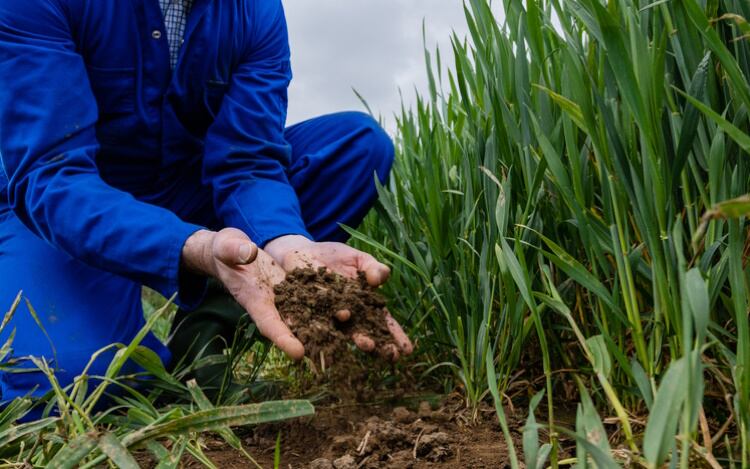ADM issues first Annual Report on regenerative agriculture

The global leader in sustainable agriculture supply chains has published its inaugural Regenerative Agriculture (RA) Report, which defines the company’s approach to this specific farming method in multiple regions around the globe.
ADM’s enrolments include more than one million acres in 2022, approaching two million as of November 1, 2023.
The outcomes – including the sequestration of 115,500 metric tons of CO2 and reduction of CO2e emissions by 253,000 metric tons in 2022 – are equivalent to removing more than 80,000 cars from the road for one year.
The company’s ultimate goal is to enrol four million acres by 2025, with the potential of reducing and sequestering CO2 equivalent to what would be emitted by powering 100,000 homes for a full year.
“As we continue to accelerate our industry-leading global regenerative agriculture program, we believe it is important to report on our progress,” said Greg Morris, president of ADM’s Ag Services & Oilseeds business.
“This work is critical to our company and to our planet. We’re proud of our progress and excited to continue to expand our efforts around the globe.”
ADM’s RA principles – which are based on Indigenous ways of land management and are adaptive to local physical conditions and culture – include minimizing soil disturbance; maintaining living roots in soil; continuously cover bare soil; maximizing diversity with emphasis on crops, soil microbes and pollinators; and responsibly managing inputs including nutrients and pesticides.
ADM offers to create value for the entire value chain by partnering with downstream customers like PepsiCo, Nestlé and Carlsberg; technology partners like Farmers Business Network; and conservation organizations like Practical Farmers of Iowa, Ducks Unlimited and American Farmland Trust. In addition, the company participates in industry initiatives and coalitions such as Field to Market, Cool Farm Alliance and Sustainable Agriculture Initiative; works with partners like the National Black Growers Council to support underserved segments of the industry; and leverages funding opportunities to bring more value to farmers, such as through the National Fish and Wildlife Foundation as well as participation in USDA’s Partnership for Climate Smart Commodities.
ADM’s RA programmes include direct financial support for farmers; easy processes and cutting-edge technologies to ensure low barriers to entry; along with a broad range of support and guidance from both internal and third-party experts.
ReSeed and FoodChain ID roll out new carbon credit verification standard

FoodChain ID – a pioneer in global sustainability certification – and ReSeed – the first provider of full lifecycle carbon credit traceability – have announced a partnership to increase transparency in measurement and verification of sustainable practices in the agri-food supply chain.
With the goal to foster a healthy planet, the partnership will leverage each company's unique expertise to incentivize, measure and verify the progress of carbon sequestration through regenerative agriculture (RA) practices under a new carbon credit verification standard.
The agri-food industry currently contributes over one-third of the total global greenhouse gas emissions, according to the UN. However, less than 1% of carbon credits on the market are sourced from agriculture.
As consumer awareness of the industry's role in accelerating global warming has grown, food companies have responded with more sustainable products and product claims. In fact, onpack carbon emission contribution claims for new products were one of the fastest growing sustainability claims in F&B, growing at 33% CAGR between July 2018 and June 2023.
In response to the claim proliferation, the carbon credit verification partnership is designed to increase measurement transparency and accountability for sustainability progress and carbon credit offsets in the agri-food supply chain.
Additionally, the partnership is designed to incentivize farmers to invest more in RA practices while complying with EU deforestation-free regulations. Finally, by combining the program with other farm-level audits – such as Organic (EU, USDA and others), GLOBALG.A.P., RTRS, RSPO, Bonsucro or ProTerra – it offers efficiencies for farmers. The first joint programs have launched with almost 1,000 farmers in Brazil already implementing deforestation-free RA practices.
ReSeed will use its AI-powered digital ledger transparency platform to collect and process data for carbon credit measurement protocols, which will allow monetization and incentivization for farmers deploying sustainable practices in the field. ReSeed's team will also leverage their legal and technical knowledge to validate carbon estimates under international standards and provide field technical assistance to sort eligible farmers based on sustainability standards for farming activities.
With over 25 years of experience in global sustainability certifications, FoodChain ID will serve as the exclusive verifier for the carbon credit partnership under ISO 14065 accreditation. FoodChain ID's independent technical experts will perform yearly audits of farm practices under international sustainability standards, adding third-party credibility to the measurement of carbon sequestration in soil.
“Together with the recent launch of our new global standard for Regenerative Agriculture Certification, today's announcement affirms our commitment to contribute to a sustainable and healthy planet, while supporting the livelihood of farmers and a transparent agri-food supply chain,” said Dr Heath Secrist, senior VP, Technical Services Americas for FoodChain ID.
Added Zak Zaidman, cofounder and president of Partnerships of ReSeed, “Incentivizing and supporting farmers to steward carbon through regenerative farming practices is crucial in the pursuit of a healthy planet.
“The carbon credit verification partnership with FoodChain ID increases transparency and trust across the global agri-food supply chain. ReSeed will continue to work closely with global brands and its supply chain to invest in sustainable and regenerative practices to secure the future of both their business and the planet.”
Ardent Mills reveals its new ESG strategy

The flour-milling and ingredient company has released its FY23 Environmental, Social and Governance Report, which highlights the company’s most recent advancements and outlines its new time-bound goals.
“Our core values of trust, serving, simplicity and safety guide our commitment to nourish what’s next. We progress towards this when we enact people-centered business practices,” said CEO Dan Dye.
“Our new ESG strategy underscores our continued dedication to intentional and impactful change – both within Ardent Mills and our surrounding communities. I am humbled by the progress demonstrated in our FY23 ESG Report and reminded of our commitment to create a more sustainable and prosperous future for all.”
The report is aligned to the company’s Nourish: Intention & Impact ethos.
Communities
This pillar has two primary goals: to expand agricultural education and the number of students engaged in agriculture through Ardent Mills’ Growing a Better Future program, along with helping to ensure access to nutrition through partnerships with organizations that serve specific needs.
To date, the company has engaged 945,000 students in agriculture education and announced multi-year, monetary gifts to agriculture innovation initiatives at Kansas State University and Colorado State University.
It has also donated more than 2.9 million meals across local communities, while its employees have volunteered more than 5,900 hours with nonprofit and community partners.
People
This pillar underscores Ardent Mills’ initiatives to cultivate a workplace in which all people thrive personally and professionally. This is being accomplished through the company's Diversity, Equity & Inclusion strategy, which:
- Identified an opportunity through employee feedback to address the industry-wide lack of custom-designed and comfortable women's uniforms that are re-usable, appropriate and uphold the company’s safety standards.
- Leveraged Ardent Mills’ Flourish intern program and recruiting opportunities at historically Black colleges and universities to welcome its most diverse intern class yet.
- Invested in team members’ personal and professional development through a variety of programs that enhance business acumen, support mental health and create a culture of employee engagement.
- Conducted almost 50,000 hours of safety, food safety and quality trainings and achieved 25 office and facility locations with no recordable safety incidents in FY23.
Planet
This pillar focuses on the responsible management of natural resources across energy, water, waste and overall opportunities for operational efficiencies.
Toward this goal, Ardent Mills has:
- Conducted greenhouse gas emissions inventory in accordance with the Greenhouse Gas Protocol across Scope 1, 2 and 3, with the goal to set a science-based target in FY24.
- Sourced 37% of energy from renewable sources, making significant progress towards its goal of achieving 50% renewable energy usage across operations by 2025.
- Confirmed 73% of its facilities now recycle, while 44% participate in composting. The goal is 100% of facilities into respective programs.
- Saved 4.8 million gallons of water through optimization efforts, including regenerative agriculture collaboration, facility-level assessments and extended trailer wash cycles.
Ingredients
This pillar highlights Ardent Mills’ efforts to responsibly source ingredients, along with its suppliers. FY23 accomplishments include:
- Forming the supplier diversity lead as a new leadership role and establishing a goal to bring 50 new diverse suppliers into the company's supplier portfolio by May 31, 2024, which will double the company’s roster of diverse suppliers.
- Enrol nearly 350,000 acres into Ardent Mills' regenerative agriculture program across the US and Canada. The company’s 2025 goal is one million acres.
- Sourcing 100% RSPO certified sustainable palm oil.
- Expanding the product portfolio to introduce more gluten-free, alternative grain options that meet emerging demand.
“Our FY23 ESG report serves as a benchmark in our continuous journey towards being responsible corporate citizens, both celebrating the progress we’ve achieved while charting our path forward,” said Phoenix Dugger, senior manager of ESG.
“Guided by Nourish: Intention & Impact, we continue to drive innovation, promote sustainability and nurture a future that reflects our commitment to social and environmental responsibility.”





